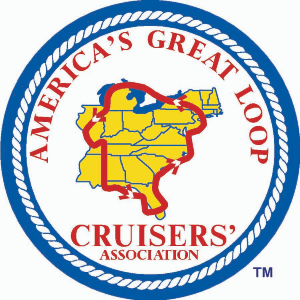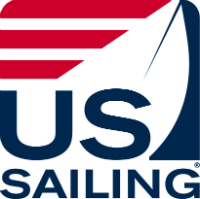The City of Miami Beach has been issuing warnings and citations to vessels anchored “within city limits,” according to boater reports. Some boats have been tagged as “derelict” while other boats and boaters have been cited or warned for an infraction of the “Limitations on Anchoring or Mooring” within city limits, referencing Municipal Code 66-8 which reads in part:
"…Vessels anchored or moored within the jurisdictional waters of the city on which persons are residing as their primary residence or for more than seven consecutive or cumulative days within a 30-day period constitutes a legal residence...and such vessels are "live-aboards" within the jurisdiction of the city to regulate…(and) constitutes prima facie evidence that such vessels are no longer exercising rights of navigation….”
One boat occupied by a woman and her son was deemed derelict and has been removed and impounded.
Miami Beach Police spokesman Ernesto Rodriguez has been contacted to provide further details – check back at WaterwayGuide.com Latest News for Florida's East Coast for updates.
The City of Miami Beach has been actively lobbying the Florida Assembly for anchoring restrictions and bans, and was a strong proponent of House Bill CS-1051 currently awaiting the Governor’s signature. The legislation would ban all overnight anchoring in four anchorages adjacent to Miami Beach and the Middle River anchorage in Fort Lauderdale. The ban would take effect July 1, 2016, and end if and when statewide anchoring and mooring legislation is enacted.
The City cites that live-aboard and stored vessels have negatively affected the "health, safety and welfare of the residents of the city in that they potentially serve as a source for pollution and contamination though discharge of human waste as well as garbage, refuse, debris, oil and other obnoxious products; constitute aesthetic pollution, being unsightly and interfering with views and enjoyment by the public of the beautiful vistas of Biscayne Bay; constitute nuisance and invasions of the privacy of homeowners and other residents of property adjacent or proximate to the bay; constitute a threat to the safety, health and welfare of residents of the city through unregulated activity upon and aboard such watercraft; and numerous other problems and disadvantages which adversely affect the quality of life of the residents and visitors to the city."
(Across the Bay, the City of Miami has similar limitations also on its books: Sec. 50-39. - Vessels no longer exercising rights of navigation: "It shall be unlawful for any person to anchor or leave at anchor in the navigable waters of the city a non-live-aboardvessel no longer exercising its rights of navigation. Any nonliveaboard vessel that remains continuously anchored for more than seven days is presumptively no longer exercising rights of navigation.")
The full text of Miami Beach City code Section 66-8 follows:
Sec. 66-8. - Limitations on anchoring or mooring within city limits.
(a) Purpose. This section is adopted for the following purposes and reasons:
- The city commission finds and declares that the proliferation of watercraft in use for residential purposes or otherwise stored in the waters of Biscayne Bay within the boundaries of the city have had and have a deleterious effect upon the health, safety and welfare of the residents of the city in that they potentially serve as a source for pollution and contamination though discharge of human waste as well as garbage, refuse, debris, oil and other obnoxious products; constitute aesthetic pollution, being unsightly and interfering with views and enjoyment by the public of the beautiful vistas of Biscayne Bay; constitute nuisance and invasions of the privacy of homeowners and other residents of property adjacent or proximate to the bay; constitute a threat to the safety, health and welfare of residents of the city through unregulated activity upon and aboard such watercraft; and numerous other problems and disadvantages which adversely affect the quality of life of the residents and visitors to the city; and
- It is the intent of the city to mitigate the adverse impact of anchored or moored watercraft, recognizing that the State of Florida has established a preemption of certain functions under F.S. § 327.60 and the Florida Administrative Code 68D-23.101(3), which address vessels in navigation but permit local regulation of vessels not "in navigation;" and
- The city has conducted studies and observed the advent of vessels not in navigation and of vessels upon which persons are residing.
- The attorney general has opined, AGO 85-45, that "vessels which are used as a person's primary residence may be 'live-aboard vessels' for purposes of municipal regulation permitted by F.S. § 327.60(2), even though they are not used solely as a residence but are also used for recreational purposes, if such vessels are represented as such person's 'legal residence' pursuant to F.S. § 327.02(16)(b), and that the determination of whether such vessels are represented as a person's legal residence may be based on a combination of the person's subjective intent and objective facts."
- The city has determined that vessels anchored or moored within the jurisdictional waters of the city on which persons are residing as their primary residence or for more than seven consecutive or cumulative days within a 30-day period constitutes a legal residence for purposes of this section, and such vessels are "live-aboards" within the jurisdiction of the city to regulate.
- The city has determined that evidence that vessels anchored or moored within the jurisdictional waters of the city for more than seven consecutive or cumulative days within a 30-day period constitutes prima facie evidence that such vessels are no longer exercising rights of navigation, and within the jurisdiction of the city to regulate.
(b) Definitions. For purposes of this section, the following definitions shall apply:
- A vessel not "in navigation," or "not engaged in the exercise of the rights of navigation," is defined as one that evidences, through a case-by-case review of applicable factors, an abandonment, either temporary or permanent, of the exercise of rights of navigation. Factors to consider as evidence of such abandonment include but are not limited to, how long a vessel has been anchored within the boundaries of the city within a 30-day period, or whether a vessel has a current registration as required by applicable law, or whether a vessel is being anchored or stored on the water to avoid dockage or storage fees, sometimes evidenced for example by a sailboat that has removed its sails. A vessel anchored or moored within the jurisdictional waters of the city for more than seven consecutive or cumulative days within a 30-day period, constitutes prima facie evidence that such vessel is not "in navigation" or is "not engaged in the exercise of the rights of navigation."
- A "non-live-aboard vessel" shall be a vessel that does not fall within the definition of live-aboard vessel as set forth in F.S. § 327.02(16), namely: "live-aboard vessel" means any vessel used solely as a residence or any vessel represented as a place of business, a professional or other commercial enterprise, or a legal residence. A commercial fishing boat is expressly excluded from the term "live-aboard vessel."
- The fact of whether a vessel is a person's or persons' "legal residence," and therefore a "live-aboard vessel" under this section may be established by evidence that the person is or persons are using the vessel as his, her or their primary residence, including evidence of a combination of the person's or persons' subjective intent and objective facts, including the fact that the vessel on which the person is or persons are residing has been anchored or moored within city limits for seven consecutive or cumulative days within a 30-day period, or that the person has or persons have no other arrangements for residence in the area beyond the seven-day period.
(c) Prohibited vessels. The following vessels are prohibited from anchoring or mooring within the boundaries of the city, except as hereinbefore and hereinafter provided:
- Non-live-aboard vessels not in navigation, or not engaged in the exercise of the rights of navigation; and
- Live-aboard vessels being used as a person's legal residence more than seven consecutive or cumulative days within a 30-day period.
(d) Exemptions. This section shall not apply to non-live-aboard vessels exercising rights of navigation, or vessels (whether non-live-aboard or live-aboard):
- Responding to a bona-fide emergency on their vessel, such as failure of the vehicle to operate, or injury or illness suffered by the vessel's operator, or during the period when a hurricane watch or warning or other dangerous weather condition is in effect, either in the city, or in the next immediate destination of the vessel, or the route thereto;
- Located within designated anchoring and mooring areas;
- Moored to or docked at private property with the consent of the property owner, whether or not also anchored to secure the vessel; or
- Anchored immediately adjacent to upland property owned or leased by the owner of the vessel, due to an inability to moor to the upland property.
(e) Emergencies. In the event of an emergency, or dangerous weather condition in effect in the city or the next immediate destination of the vessel, or the route thereto, as provided for in subsection (d) above, the owner or occupant of the vessel shall immediately contact the city's marine patrol, and inform them of the nature of the emergency or weather condition, and the amount of time required to remedy the situation. Upon the abatement of the emergency or weather condition, compliance with this section is required.
(f) Designation of public anchoring and mooring areas. The city commission, or designee, may designate public anchoring and mooring areas, subject to rules, regulations and permitting procedures by the city manager and such other local, state or federal agencies with jurisdiction.
(g) Violations and penalties.
- Any violation of the provisions of this section shall be a violation of the City Code as well as F.S. ch. 327. Any person who owns, operates or is otherwise in control of a vessel and who violates any of the provisions of this section, or the provisions of F.S. ch. 327, may be charged with a noncriminal (civil) infraction and shall be subject to the enforcement and penalty provisions and procedure of Code chapter 30 as well as F.S. ch. 327. Any vessel that is in violation of this law may also be subject to the provisions of Code sections 66-221 through 66-229.
- In addition, any vessel violating this section shall be subject to removal and impoundment, and operators of such vessels may be charged with a noncriminal (civil) infraction pursuant to F.S. § 327.73, by any law enforcement agency with jurisdiction to enforce this ordinance (enforcing agency). The city's marine patrol will regularly document the arrival and location of vessels, at which time it will provide the vessel operator with written notice about this section. If no vessel operator is located on or about the vessel at the time of documenting its arrival and location, the marine patrol will post such notice on the vessel, and send notice by certified mail to the last registered owner of the vessel, if reasonably obtainable, informing such owner of the seven-day limitation and 48-hour warning period prior to impounding. Failure to provide this arrival notice by posting or mail shall not affect enforcement proceedings. Forty-eight hours prior to removal and impoundment the enforcing agency shall post notice of violation on the vessel to be impounded, to afford the owner or operator the opportunity to move the vessel from city limits or to a lawful location. Within five days following removal, the enforcing agency shall provide written notice by certified or registered mail return receipt requested to the registered or documented owner at his, her or its address of record as to where and how the vessel can be recovered. If the vessel is not repossessed by the owner within 20 days after mailing of such notice, the vessel shall be disposed of in the manner and under the provisions of sections 66-223 through 66-227, or other applicable law. The owner of the vessel shall be responsible for all costs for removal and impoundment of the vessel, which shall become a lien upon and against the vessel and which shall be paid prior to release of the vessel to the owner or agent.
- Nothing herein shall be deemed to abrogate the handling of derelict vessels as provided by sections 66-228 and66-229 of the Code. (Ord. No. 2005-3484, § 1, 5-18-05).












